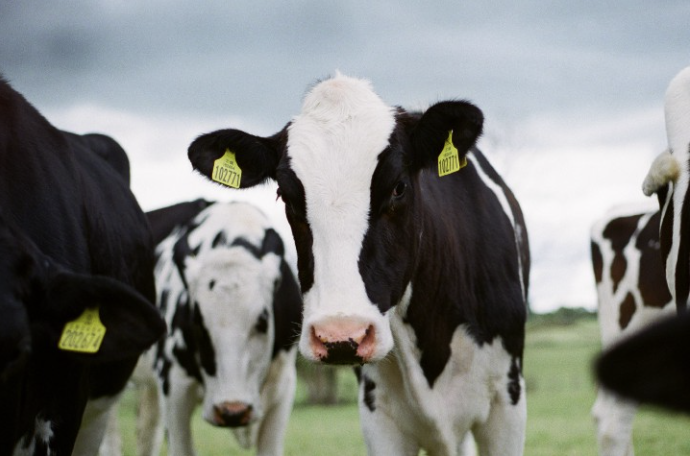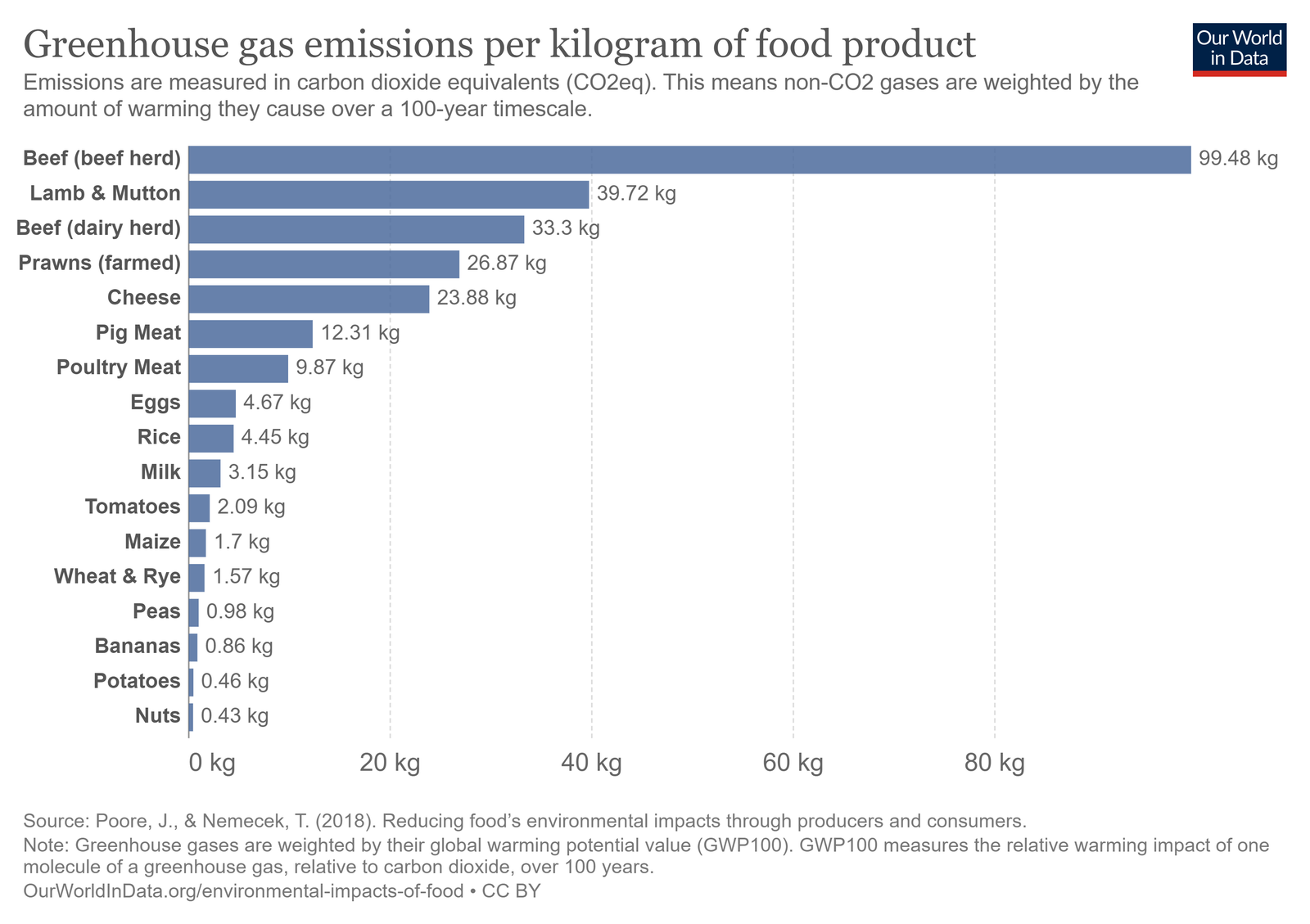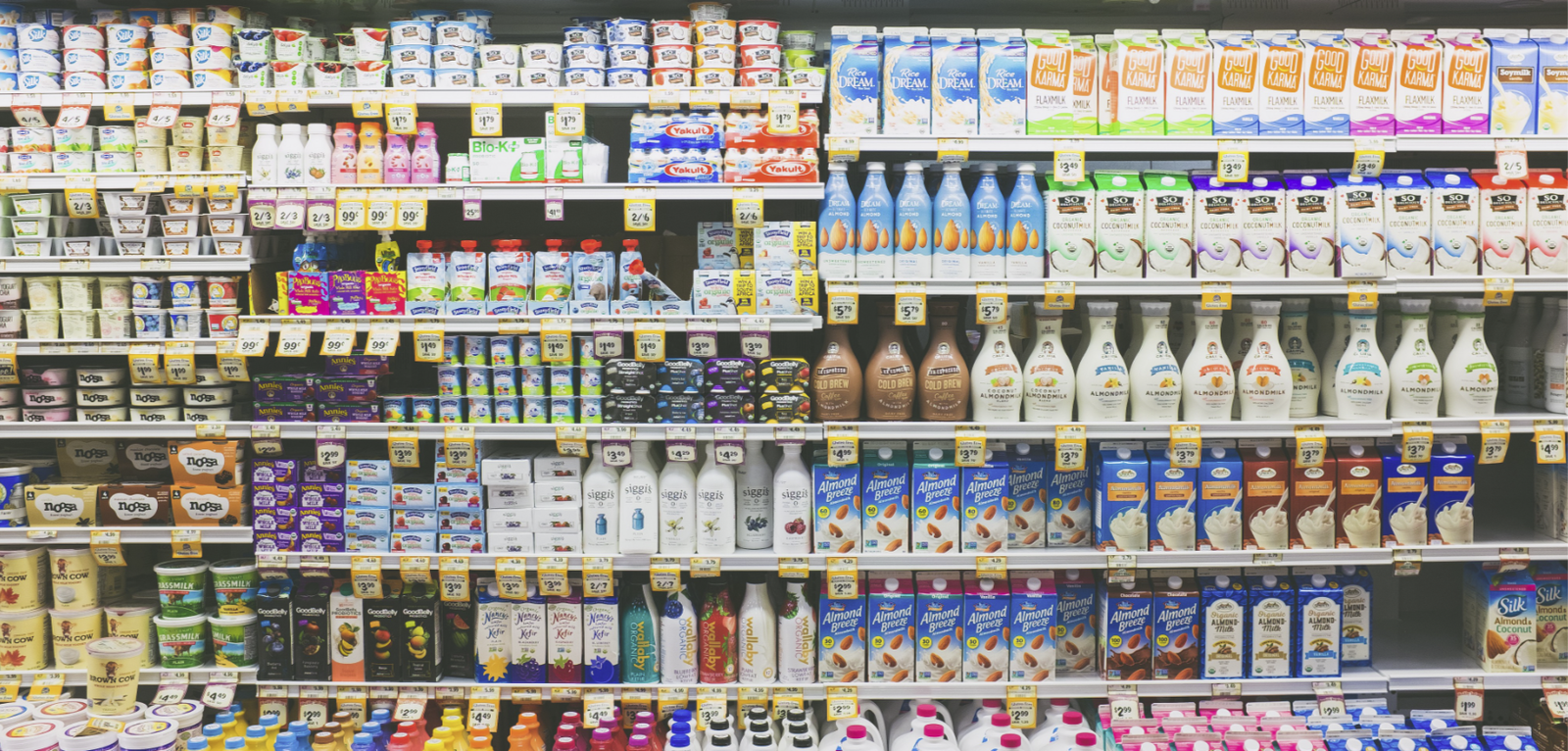Beyond, Impossible, or within reach: Can plant-based meat replace cattle?


· 8 min read
Since Beyond Meat opened on the stock market in 2019 and Impossible Foods announced partnerships with major chains like Burger King, plant-based proteins have reached more and more grocery store shelves and restaurant tables nationwide.
These products were created with a values-based mission to shift from animals and “find a better way to feed the future,” says Beyond’s website, to “positively affect the planet, the environment, the climate and even ourselves.” Similarly, Impossible’s slogan is to “eat meat. Save the planet.”
Cows are the number one climate change contributor in the agricultural industry. Their methane emissions and significant land use make them one of the most intensive industries in our food chain— they are 86.2% of all livestock-related methane in the US. Even if we were to eliminate all fossil fuels from our economies, the demand for meat and dairy alone would still put us over our target warming limit of 1.5 degrees.

We often focus on carbon in our climate goals, but methane is also crucial to combat — it is 80 times more potent than carbon dioxide in a 20-year period. Carbon dioxide stays in the atmosphere for hundreds of years, but methane’s timeline is a lot shorter, at roughly ten years. Working hard to carve methane emissions could make all the difference for climate goals.
As for the best way to do this, it’s all about “rethinking our approaches to agricultural cultivation and livestock production,” says James Lomax, the United Nations Environment Program’s Food and Agriculture advisor.
Americans, on average, go through 274 pounds (124.1 kg) of meat a year, according to Our World in Data. But consumers are warming up to the idea of alternative meat. Nearly two-thirds (65%) of the country had one of these products in 2021, and two out of five people ate them weekly or daily, reports an International Food Information Council survey.
How likely is Beyond and Impossible’s vision to make the shift from beef to plants? Here’s how they stack up.
In terms of environmental impact, plant-based meat is much better than beef. A 2017 University of Michigan study revealed that Beyond pea protein burgers “generate 90% less greenhouse gas emissions, require 46% less energy, have >99% less impact on water scarcity, and 93% less impact on land use than a quarter pound of U.S. beef.” Impossible’s soy patties total 91% less emissions, 92% less water, and 96% less land than beef.
Cows require a lot of land — it takes about 100 times the land to produce beef than its plant-based counterpart since the cows need plants for food themselves. That also requires a lot of water to keep crops healthy. And of course, they produce most of the agricultural methane. Not only this, but cutting down forests to make space for cattle cropland releases long-stored carbon in the atmosphere, and the plants that cows eat often grow in a nitrogen fertilizer that releases more carbon and nitrous oxide, explains Carbon Brief.
To be more climate-conscious, it’s definitely more efficient to cut the meat and go straight for plants as our energy source. And at the individual consumer level, Project Drawdown explains that one of the most impactful choices we can make for the climate is eating more plant-based food.

It’s worth noting that plant-based meat is not a perfect net-zero emissions option, but few foods can even get close. These crops have some impact on the land and atmosphere via soil tillage that releases carbon. Critics of plant-based meats are concerned about processing, GMOs, and industrial farming practices, though across the board, plant-based alternatives have a smaller impact than beef in these areas. That, and innovations in electrification and farming practices will make plant horticulture more efficient — i.e., serving a wider base and in a less damaging manner.
The major players in the plant based-game, Beyond and Impossible, have yet to disclose their emissions across all operations, leading sustainability analysts to hesitate in promoting the product as a climate champion. Though in terms of corporate ethics and responsibility, this is not at all comparable to the “Big Meat’’ industries’ multimillion-dollar campaigns trying to downplay their climate impact and lobbying against climate policies.

And we can’t let the perfect be the enemy of the good, as Tamar Haspel said of plant-based proteins in the Climavores podcast. There is no denying that against beef, our soy and pea protein alternatives are less environmentally intensive, and even if plant-based proteins aren’t perfect, beef is just inefficient to produce. Cattle are about half the food related-emissions in the US, but only 3% of caloric intake, says Consumer Reports.
Cows are an emissions-intensive industry, but they’re also a $74.6 billion one. Plant-based meat pulled in $1.4 billion in 2021. Financially, there’s a lot of ground to make up.
Not to mention, replacing livestock would alter the livelihoods of farmers and everyone involved in the agricultural aspects of the beef industry, and that would have major economic and social impacts. It is the farmers who grow animal feed, raise livestock and the meatpacking plant workers who would be most vulnerable in a plant-based future.
This would require a just transition akin to the coal and fossil fuel workers in our energy grid transition. Fortunately, if plant-based meat does take over, Jenny Splitter notes in Vox that many of these jobs can translate into thriving “domestic plant-based ingredient markets.”
Though of course, cows produce more than just the burgers that Beyond and Impossible aim to replace — dairy products and other meat cuts still play a significant role in the industry’s revenue. The rise of alternative dairy products is promising, but so far, there is no plant-based alternative to products like steak. Some aspects of the cow’s uses are still not quite replaceable.

Not to mention, costs per unit are no competition. Plant-based meats are still about 65% more expensive than beef, according to the Breakthrough Institute. For this to become a regular part of many diets, reducing the high cost of these burgers is essential. Plant-based protein sales are only 1% of the retail meat market — to really see the climate effects, scaling this industry is going to be key.
Market options often offer a false dichotomy when it comes to climate, pitting societal and policy level change against individual consumer choices and placing all the burden on one over the other. Plant-based meats are no exception. It’s easy to wonder if what you are buying at your grocery store can make any difference. And many people agree the responsibility should not be yours; rather, it should be up to the government to guide us with health and climate policy to reduce food-related emissions and help scale up food-tech solutions.
Shaming those who opt for a burger is not the way to promote a soy-based transition. But providing them with the information to make their own choices can help, and various businesses are taking it upon themselves to do so, such as restaurants adding climate change impacts to their menus.

Consumer choices have a role as well, making contributions to both climate impacts and creating trends that push the market in the right direction. And of those who are buying plant-based proteins, surveys reflect their main drivers are primarily perceived healthiness and environmental impact. Personal benefits and values such as these are what plant-based companies need consumers to identify with to achieve their climate-based mission.
Even though it is unlikely that America will be taking meat off the menu anytime soon, sustainable beef is making strides. There are other exciting solutions that agriculture is undertaking to minimize the cow’s climate impact, such as relying on seaweed as a food source, better practices for manure management and soil health, as well as overall better animal welfare. Lab-grown meat technology is still nascent and largely unavailable for retail, but once it hits the shelves, it could play a significant role in a sustainable meat pathway.
There’s no doubt that shifting to a heavier plant-based diet has a better outlook for our climate goals. Of course, the true lowest impact foods are the unprocessed and easily grown vegetables and legumes. But they don’t serve the same role as these plant burgers do — food is tied up in so many cultural, health, and societal values to consumers, and these companies know this.
These alternatives uniquely fill a niche for anyone who wants to reduce meat consumption and enjoy a plant-based way to have a fulfilling culinary experience. Whether it’s a Meatless Monday, a special occasion, or a regular staple in an otherwise omnivorous diet, plant-based burgers offer this option while also reducing climate impact.
This article is also published on Medium. Future Thought Leaders is a democratic space presenting the thoughts and opinions of rising Sustainability & Energy writers, their opinions do not necessarily represent those of illuminem.
illuminem briefings

Sustainable Lifestyle · Social Responsibility
illuminem briefings

Social Responsibility · Sustainable Lifestyle
illuminem briefings

Biodiversity · Sustainable Lifestyle
BBC

Biodiversity · Climate Change
The Irish News

Diversity & Inclusion · Entertainment
rfi

Climate Change · Art